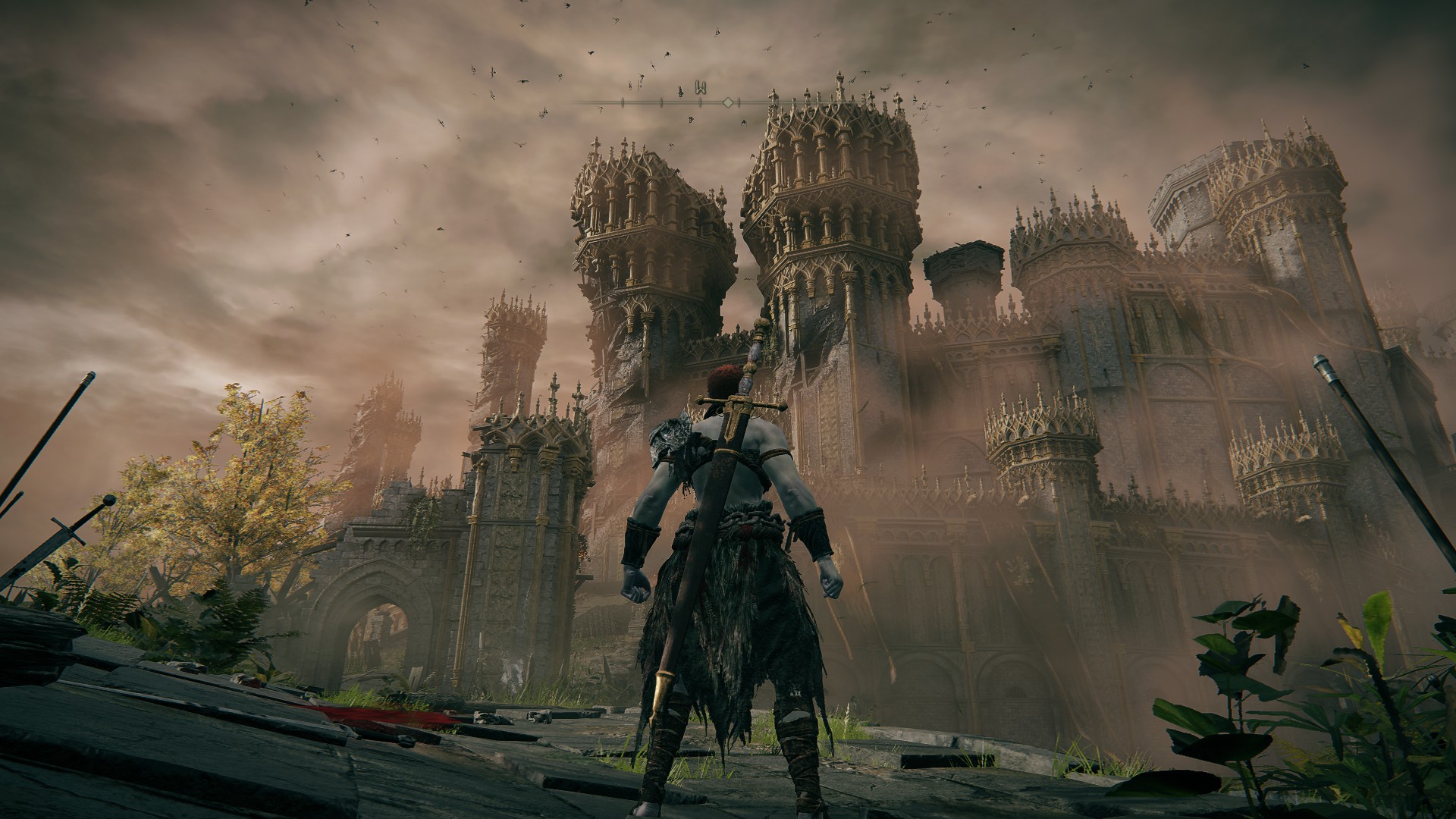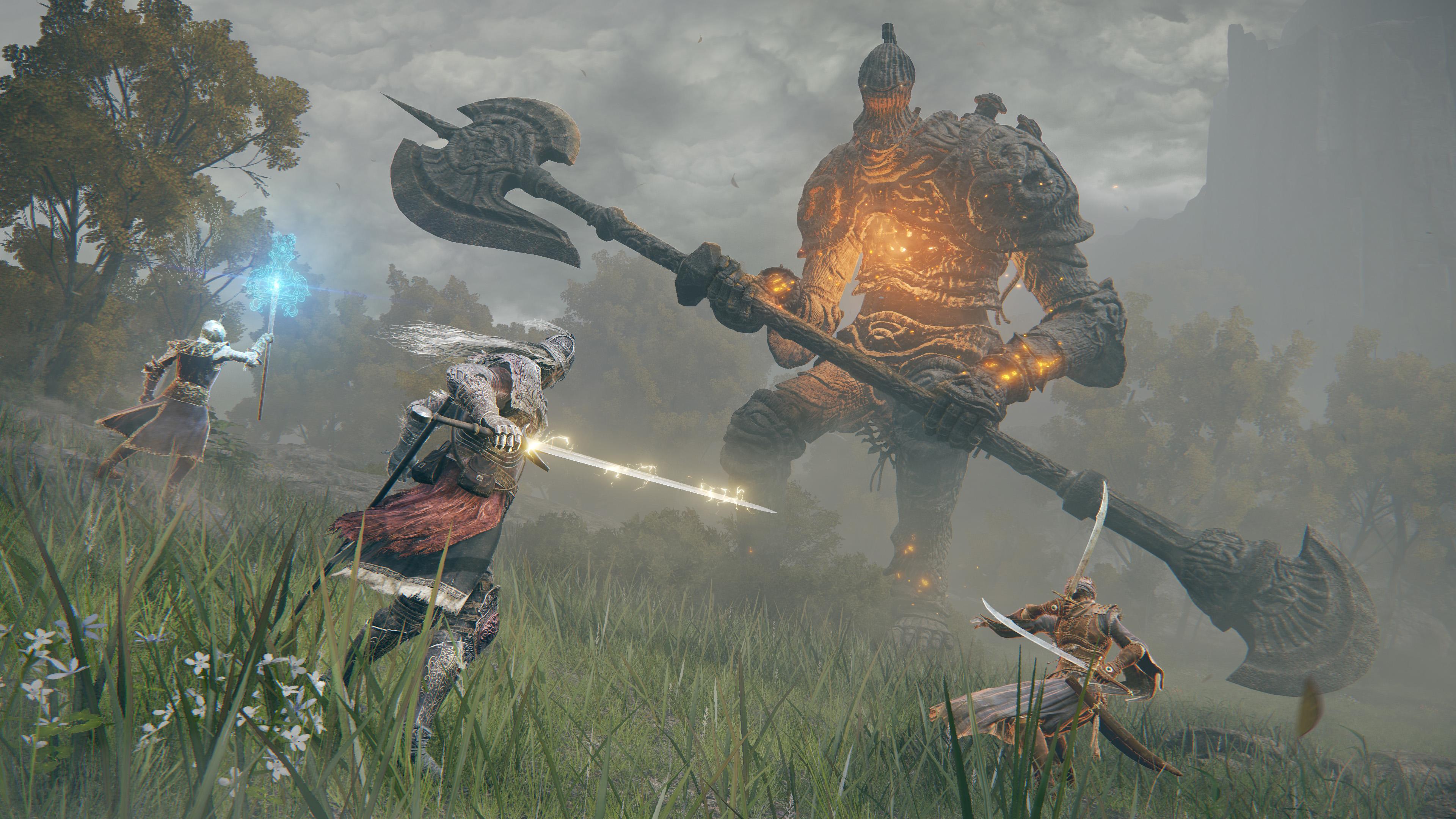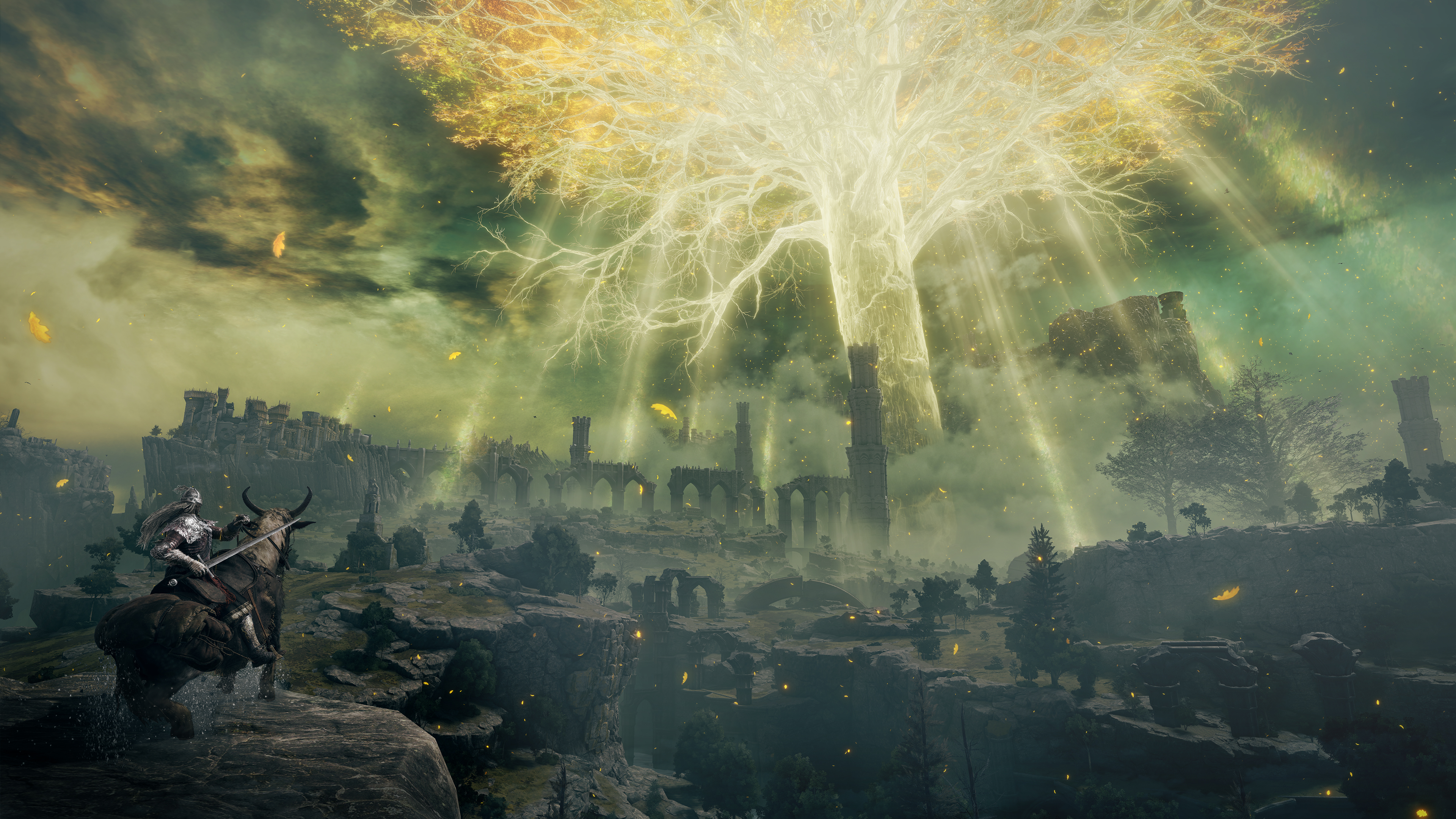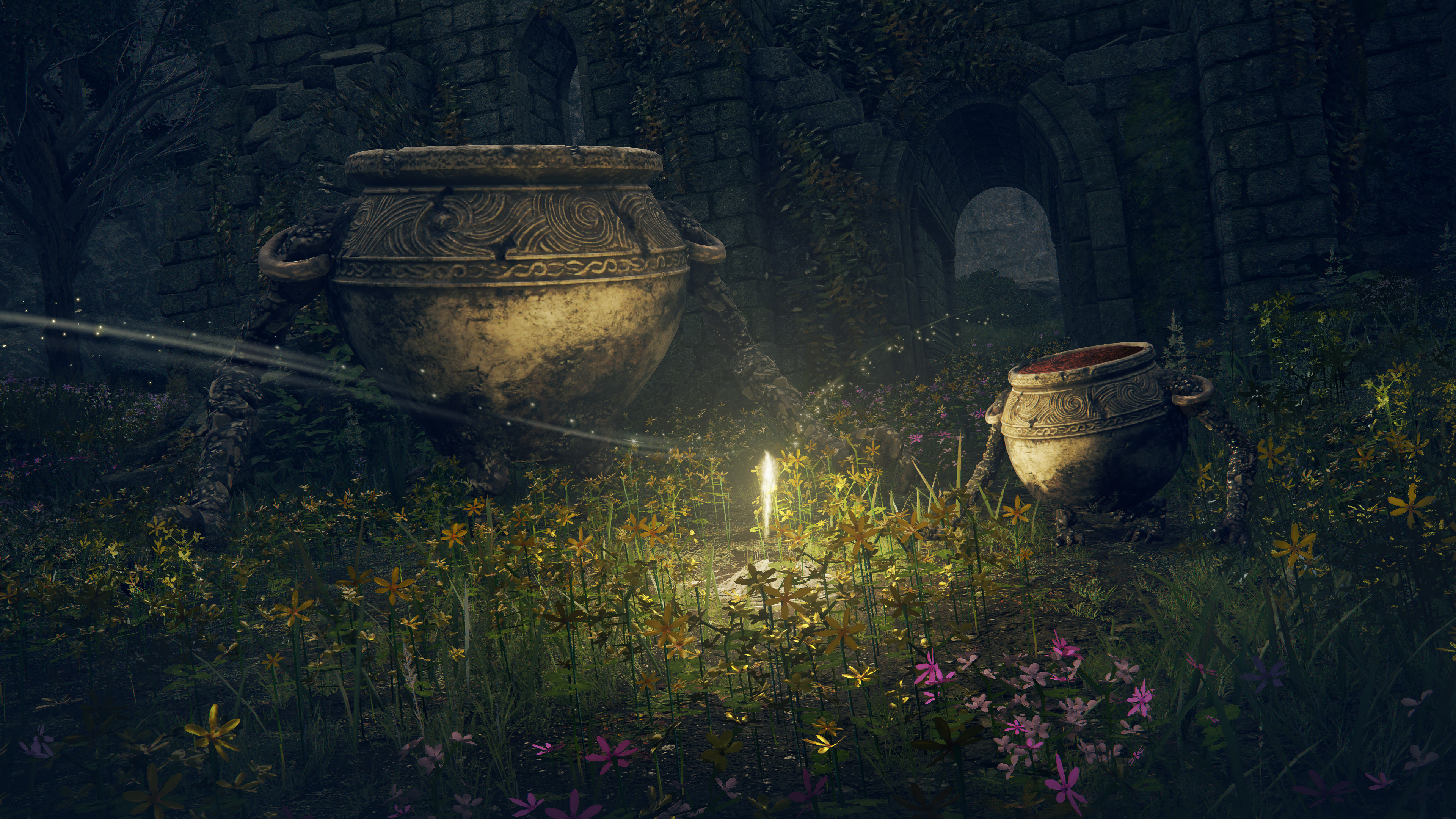Elden Ring is the anti-Ubisoft game – and it’s kicking my ass
Getting out of bad habits

Sign up for breaking news, reviews, opinion, top tech deals, and more.
You are now subscribed
Your newsletter sign-up was successful
I’ve got a Ubisoft problem. I keep playing its games, even though most of the time they leave me disappointed and unfulfilled.
After getting turned off by Assassin’s Creed Unity’s buggy launch and icon-stuffed map, I returned like the useless worm I am when Assassin's Creed Syndicate launched. A few years later, after completing Assassin’s Creed Odyssey’s overlong campaign (again filled with an overwhelming map full of icons and unfun side activities because MORE CONTENT = MORE FUN, apparently) I thought I was burned-out and done.
Then I went and got Assassin’s Creed Valhalla, whose campaign was somehow even more bloated. After I was finally done with that, I put down my controller and swore NO MORE UBISOFT OPEN GAMES.
No more large maps that somehow feel both too full and too empty. No more cut and paste repeated missions where you have to fetch three objects or fist fight a foe. No more pointless crafting, useless mini-games, or identikit enemy bases that you have to clear out for little reward.
Then, Far Cry 6 came out… and I played that. Yep, I hate myself.

The good news is that after I finished Far Cry 6, which came with all those Ubisoft open-world annoyances, natch, Elden Ring launched to shake me out of my complacency and kick my ass.

Painful lessons
Elden Ring is the first FromSoftware game I’ve played, but I knew about their fearful reputation for difficulty. Sure enough, one of the first enemies I walked up to swiftly killed me in two blows.
Sign up for breaking news, reviews, opinion, top tech deals, and more.
More deaths swiftly followed, and I soon realized the game was punishing me. Not because it was a bad game, or the developers are evil, but because I was playing it wrong. I was approaching it as a Ubisoft open world, and for that insult, it was killing me. Over and over again. I respected that.
In Assassin’s Creed, I’d think nothing of jumping into a group of enemies and taking them down. In Elden Ring, I now know that if I tried that, I’d be deader than a dead thing in no time. Both Assassin’s Creed and Far Cry games give you chances to get powerful, over the top, weapons relatively quickly, and taking down enemies becomes trivial. It’s fun, but mindless fun, and without any real challenge. The more overpowered you become, the less useful upgrades and leveling up becomes. In Elden Ring, because you feel so vulnerable, every increase in stats feels like a blessing.
Enemy scaling in Ubisoft open worlds is also now a bit broken, if I’m honest. Most of their games now scale enemies to your level, which means baddies aren’t ever too much of a challenge, nor are they ever too easy.
In Elden Ring, enemies have a set level, so when you first bump into one and it kills you easily (which is most of the time for me), going away, doing other bits and pieces to earn runes (a form of currency) to level up and get stronger, means you can then return to them later and take them down. This is time-consuming but immensely satisfying.

Competent cartography
With Ubisoft’s huge maps, I’m also used to being told exactly where to go, with icons dotting the maps and visual elements that show you your objectives during missions. Again, this can take the challenge out of the games, while also preventing organic discoveries.
With Elden Ring, you’re pretty much left to your own devices. For someone used to the Ubisoft method, this leaves you baffled and lost. I had no real idea where I had to go, so I picked a direction and set out. I genuinely found myself lost in an alien world, which is certainly the vibe I think FromSoftware was going for.
The way the game handles death is also a breath of fresh air. In Ubisoft games, dying is pretty trivial, and is mainly just an annoyance. If you die during a mission in Assassin’s Creed or Far Cry, you just start again at the last checkpoint and try again until you complete it. You don’t lose anything, and in some annoying missions, it just means dying and restarting over and over again until you get past another checkpoint. To give Ubisoft some credit, with Watch Dogs: Legion it did mix things up a bit by introducing permadeath for player characters.
Death done right
In Elden Ring, death has consequences. If you die, you’re whisked off back to the last Site of Lost Grace visited, slain foes are revived, and any runes you had are dropped.

In a fantastic gameplay twist, that’s also in previous FromSoftware titles, you can return to where you died to retrieve your dropped runes. This introduces an element of risk where you weigh up whether to go back for more punishment with the possibility of getting your runes back. If you die before you get to them, they’re gone for good.
The lack of map icons, while initially baffling, also means I take greater care traveling through the world, keeping an eye out for secrets and places of interest. In a Ubisoft game, I’d just keep an eye on the mini-map as I traveled to an icon. This meant I missed a lot of the loving detail the game designers put into the world.
Elden Ring isn’t perfect, though, and some of its design decisions are baffling to a newbie like me. While I appreciate it doesn’t hold my hand like a Ubisoft game and throw a load of tutorials my way, sometimes the lack of instruction can annoy. For example, I had to actually go online to look up how to open the map, as the game never told me. The minimal instructions for upgrading your flasks and weapons also make the first few hours more confusing than they needed to be.
But FromSoftware has done a great job of creating this anti-Ubisoft game that really challenges my expectations and highlights just how formulaic Ubisoft games have become. While I’ll still probably end up playing the next Assassin’s Creed or Far Cry, I’d really like to see the company switch things up and challenge – and respect – its players, as Elden Ring does.
- These are the best PC games of 2022

Matt is TechRadar's Managing Editor for Core Tech, looking after computing and mobile technology. Having written for a number of publications such as PC Plus, PC Format, T3 and Linux Format, there's no aspect of technology that Matt isn't passionate about, especially computing and PC gaming. He’s personally reviewed and used most of the laptops in our best laptops guide - and since joining TechRadar in 2014, he's reviewed over 250 laptops and computing accessories personally.